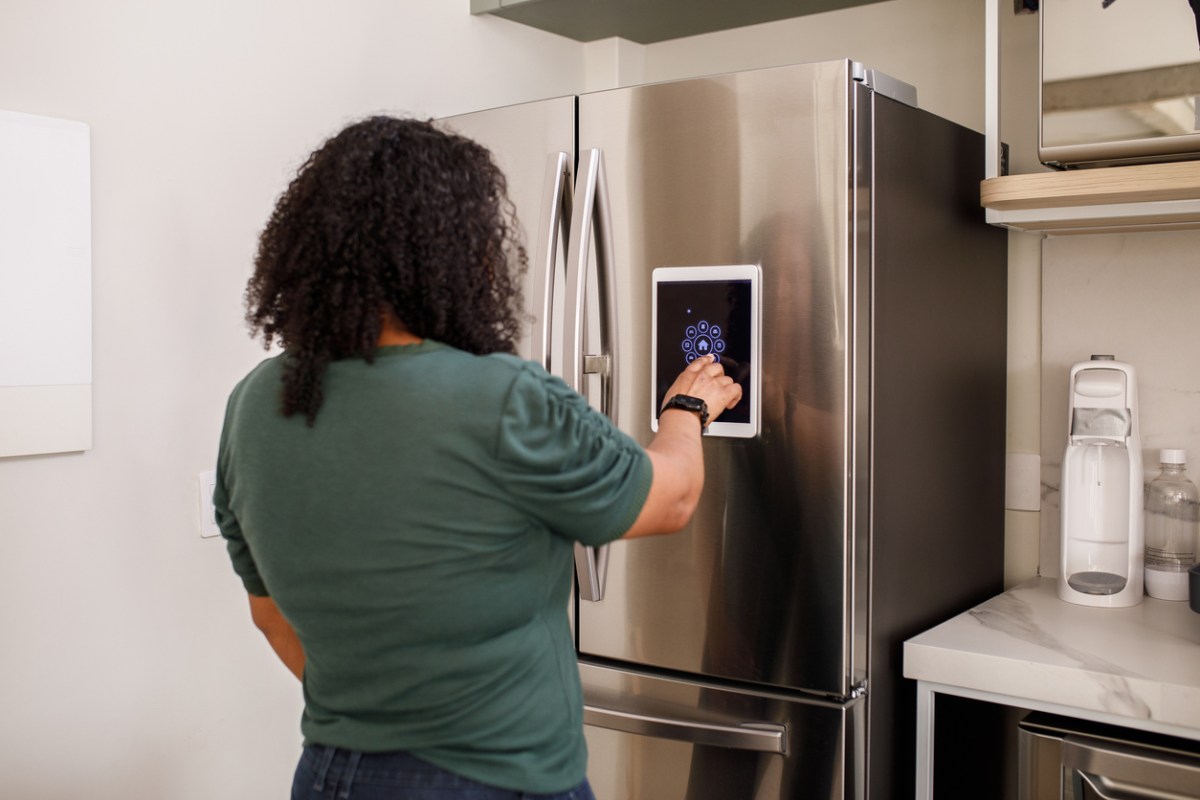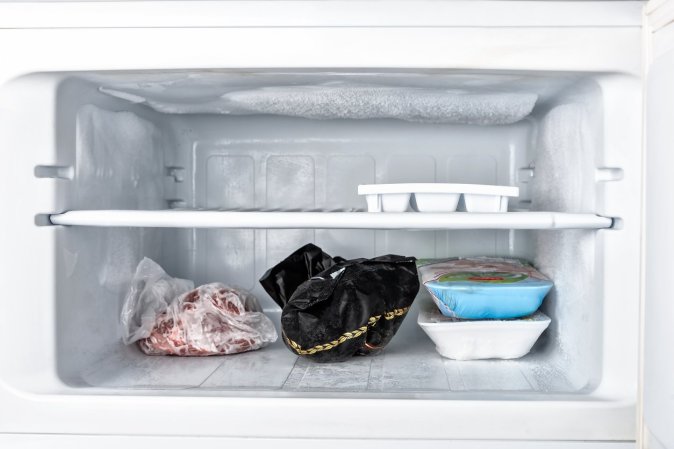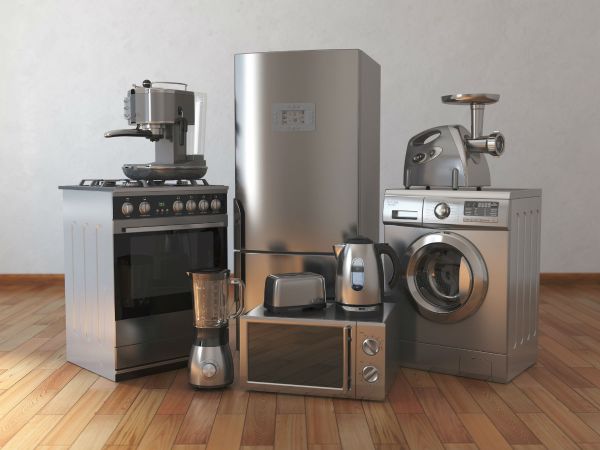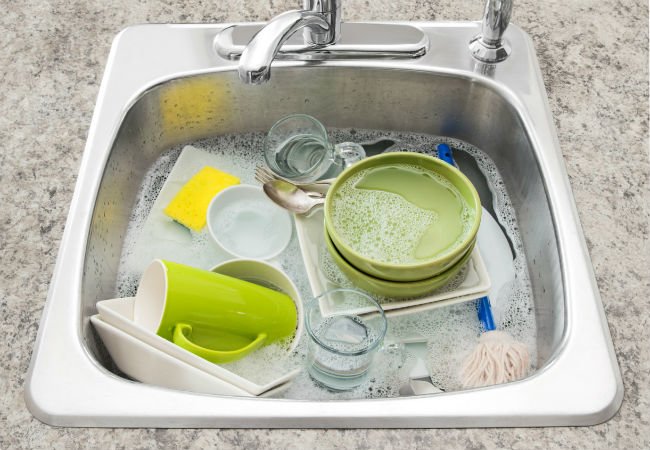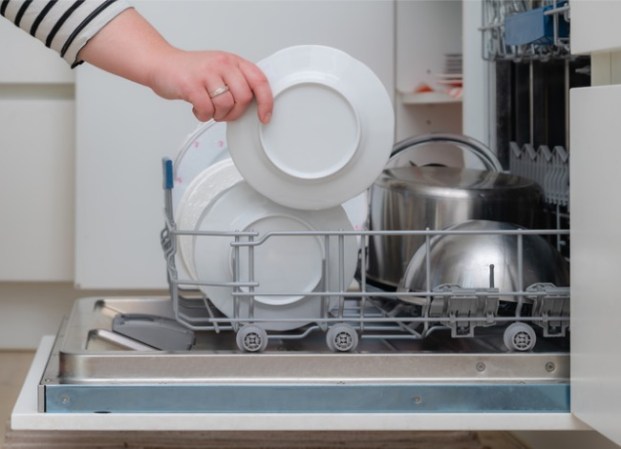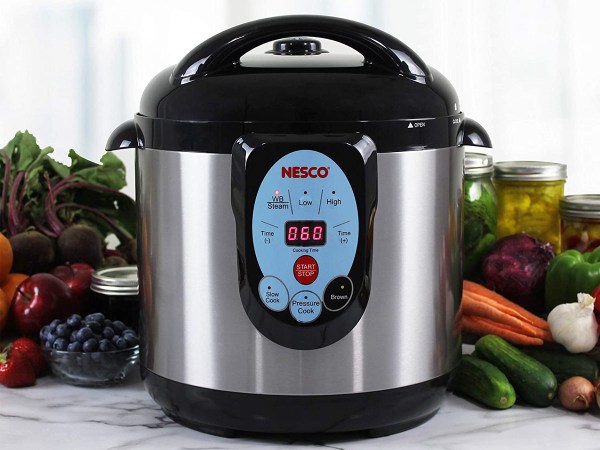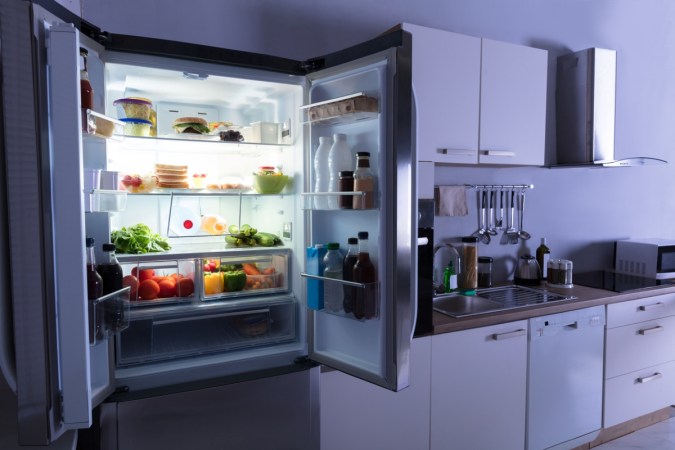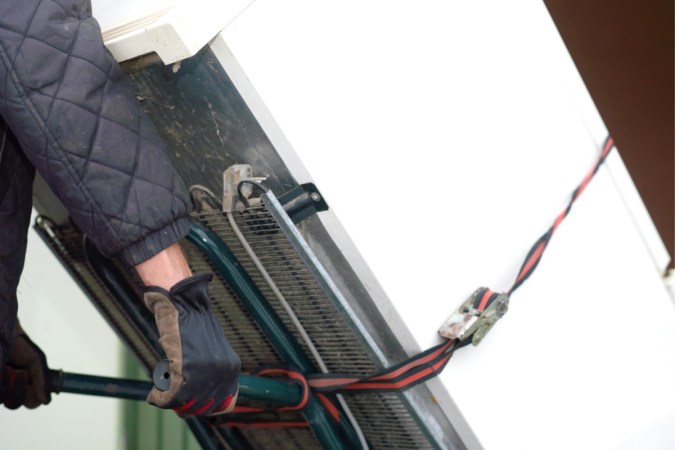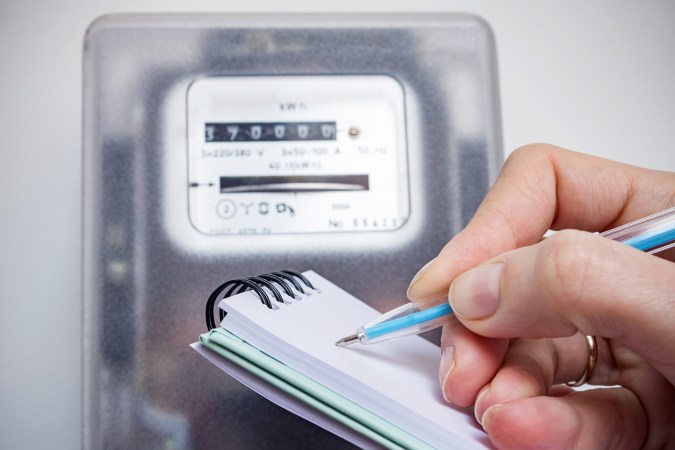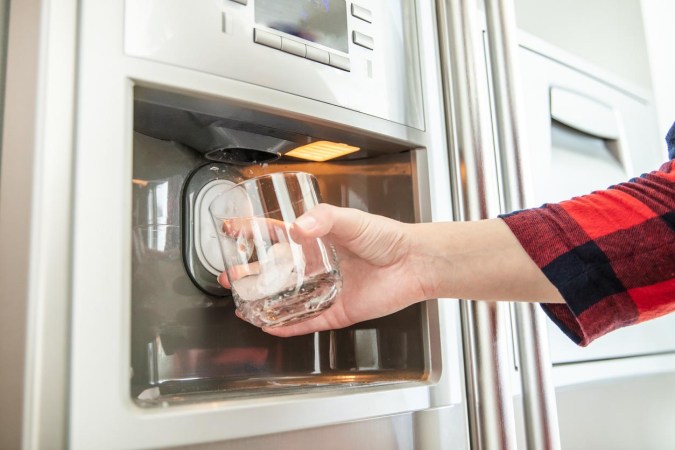We may earn revenue from the products available on this page and participate in affiliate programs. Learn More ›
Q: My 9-year-old fridge is on the fritz, but it seems premature to replace it if it’s still functioning. How long do refrigerators last? How much longer should I wait before buying a new one?
A: Given that a new fridge is not an inexpensive or small purchase, it’s wise to be careful when deciding if it’s time to replace a refrigerator. A new one can set you back between $350 and $12,000, according to The Home Depot’s current available selections. HomeAdvisor estimates that installation costs for water supply lines and built-in models can add $70 to $3,900 to the cost, respectively, so it’s understandable to want to extend the fridge’s lifespan as long as possible.
However, with the current fragility of the supply chain, it’s important to plan ahead for new appliances. While we used to be able to order a new kitchen appliance and expect delivery within days, the timing may now be months. So if your refrigerator is showing any obvious signs of impending failure, it’s important to start thinking about replacing it.
How long does a refrigerator last?
The typical life expectancy of a refrigerator is 10 to 15 years, and the average fridge with a freezer on the bottom or top can reliably run for about 13 years. However, the refrigerator’s lifespan varies by the model, so don’t rely on its age alone to determine if you’re ready for a new one.
Instead, rely on the working condition of your fridge as a gauge. Its individual components begin to deteriorate, increasing the risk of malfunctions from pesky noises to excessive frost build-up in the freezer. Your fridge also can start to lose cooling efficiency and cause your utility bills to spike.
Below are some signs that your fridge is impractical or impossible to fix and may warrant a replacement.
RELATED: The Best Refrigerators for Your Home
Know the signs that it’s time for a refrigerator replacement.
- The rear exterior surface of your fridge is generating an excessive amount of heat.
- Food spoils prematurely even when you correctly set the temperature adjustment control to a food-safe setting of 40 degrees Fahrenheit or less.
- You frequently see condensation inside of the fridge, but the fridge door gaskets are in good condition.
- The fridge buzzes loudly even after unplugging and plugging it back in.
- Your fridge is completely silent when it’s plugged in (a gentle hum is expected), but there’s no evidence on the electrical panel to suggest that the circuit breaker for the fridge flipped.
- You frequently notice that the frozen foods you retrieve from the freezer are regularly covered by a thick layer of frost.
- Your utility bills are mysteriously shooting up despite making no changes in your appliance usage. If this is the case, an energy-usage monitor plugged in between the fridge and the fridge outlet will indicate that the fridge is drawing more wattage than it has in the past. It might be time for a more energy-efficient model.

Get the most out of your refrigerator warranty.
While there are variations on warranties for refrigerators, most warranties for fridges just cover the first year of use, and specifically cover defects in the materials and can include parts and labor. As it’s hard to know whether the model you are purchasing is a good refrigerator that is defect-free, it’s important to keep that warranty handy if anything happens. Plus, to get the most out of the warranty, make sure to assess all of the fridge’s functions before that warranty runs out.
When considering upgrading a warranty, think about how much the warranty will cost versus the cost of that fridge. For high-end hi-tech appliances, it often makes sense to have a robust warranty, as there are many more parts that could go awry. According to Home Advisor, the average cost to repair a typical refrigerator is about $200 to $330, but the cost for repairing a high-end model could be $1,000 or more.
Regular maintenance helps extend the average lifespan of a refrigerator.
While it’s possible to repair some refrigerators, the average cost of repair can be as much the average cost of refrigerator replacement, if not more. Fortunately, by troubleshooting fixable problems and regularly maintaining your fridge, you should be able to extend its lifetime.
Clean the coils.
Condenser coils, which are the metal tubes found on the fridge exterior at the base or behind your fridge, help liquefy vaporized refrigerant from the unit’s compressor in order to release hot air from inside the fridge out into the kitchen. Dust and dirt trapped inside these coils prevent the efficient escape of heat, which can cause your fridge to constantly cycle on and off and eventually stop running completely.
Clean the coils once or twice a year to help make old fridges last longer. First, unplug the fridge, and then access the condenser coils behind the snap-on toe kick plate at the base, or pull the unit away from the wall if the coils are behind it. Vacuum dust on the coils with a dust brush attachment, then work a condenser coil brush like the Vanitek Condenser Coil Brush along and between the coils to eliminate dirt.
Lubricate the door gaskets.
The rubber insulation around the edges of the refrigerator door interiors seals in cold air and shuts out hot air. Over time, these gaskets can become misshapen, form cracks, tear, or loosen from the door. If this happens, cold air can leak out of the fridge and hot air can enter, increasing interior moisture. This can also cause ice dams to form in the fridge and freezer. These obstructions reduce storage space and hinder heat exchange between the unit and surrounding air, making it less efficient.
Lubricate the door gaskets by applying a thin film of petroleum jelly to the outer edges. This will maintain their elasticity and protect the integrity of the seal.
RELATED: Solved! When to Worry About Refrigerator Noises
Clear the vents.
The vents located on the side walls of your fridge and on the roof of your freezer aid in air circulation in the unit. When obstructed by food, vents work inefficiently, causing moisture or frost build-up and uneven cooling.
To keep the vents clear, move any foodstuffs placed directly in front of the vents and ensure that any twist ties from frozen food bags or crumbs from exposed foods like cakes do not encroach on vent openings.
Perform timely troubleshooting to extend the life of a fridge.
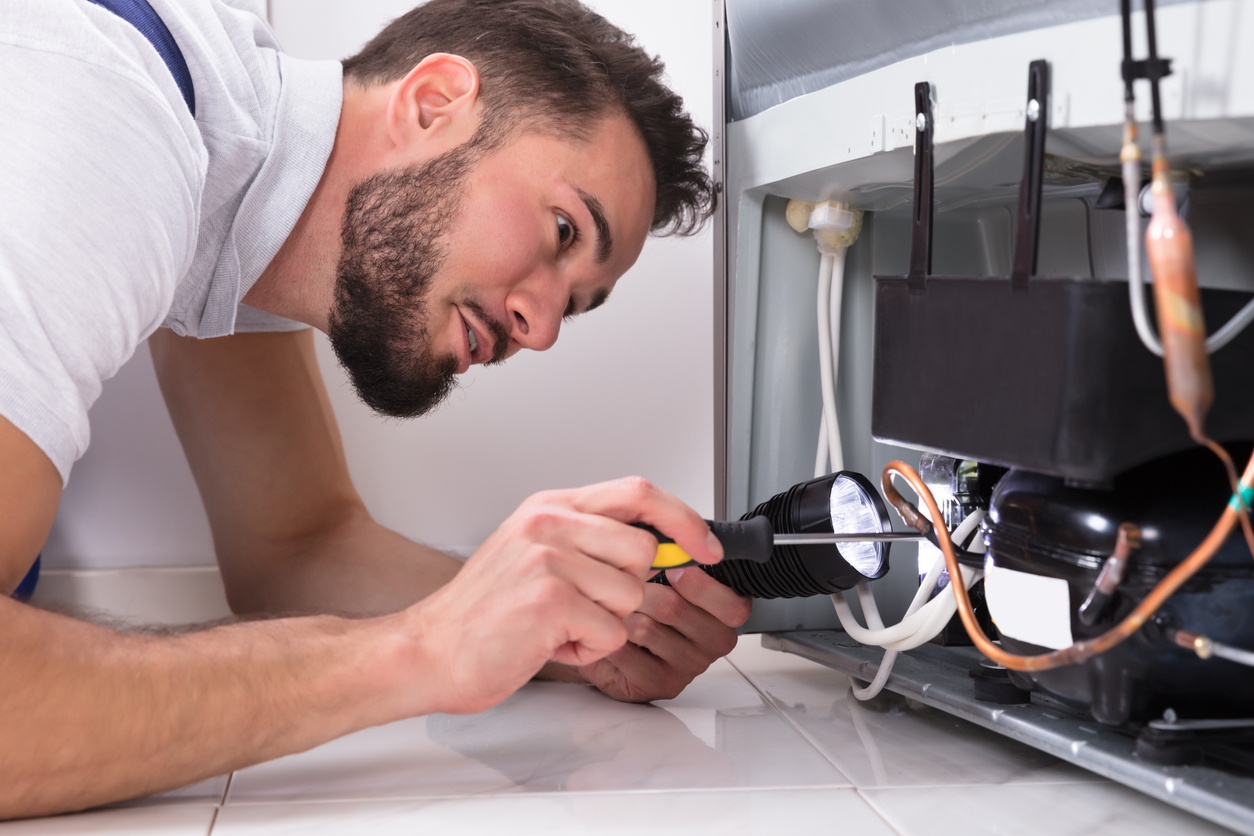
Resolve minor fridge malfunctions as they arise to keep them from progressing into more severe problems. Below are easy fixes for common fridge troubles.
Is there a puddle of water on the floor?
If you see a puddle of water on the floor beneath the fridge, the water supply line to the ice maker or water dispenser may be compromised.
To fix the water line, unplug the fridge and close the water supply shut-off valve in the basement or under a sink near the fridge. Replace the plastic supply line connected to the valve if it is cracked or visibly leaking water.
Do you hear an unusual sound?
If your fridge makes grinding or scraping sounds, the fan that cools the condenser coils may be to blame. Unplug the fridge and access the fan in the same compartment as the condenser coil at the base. Replace worn or broken fan blades.
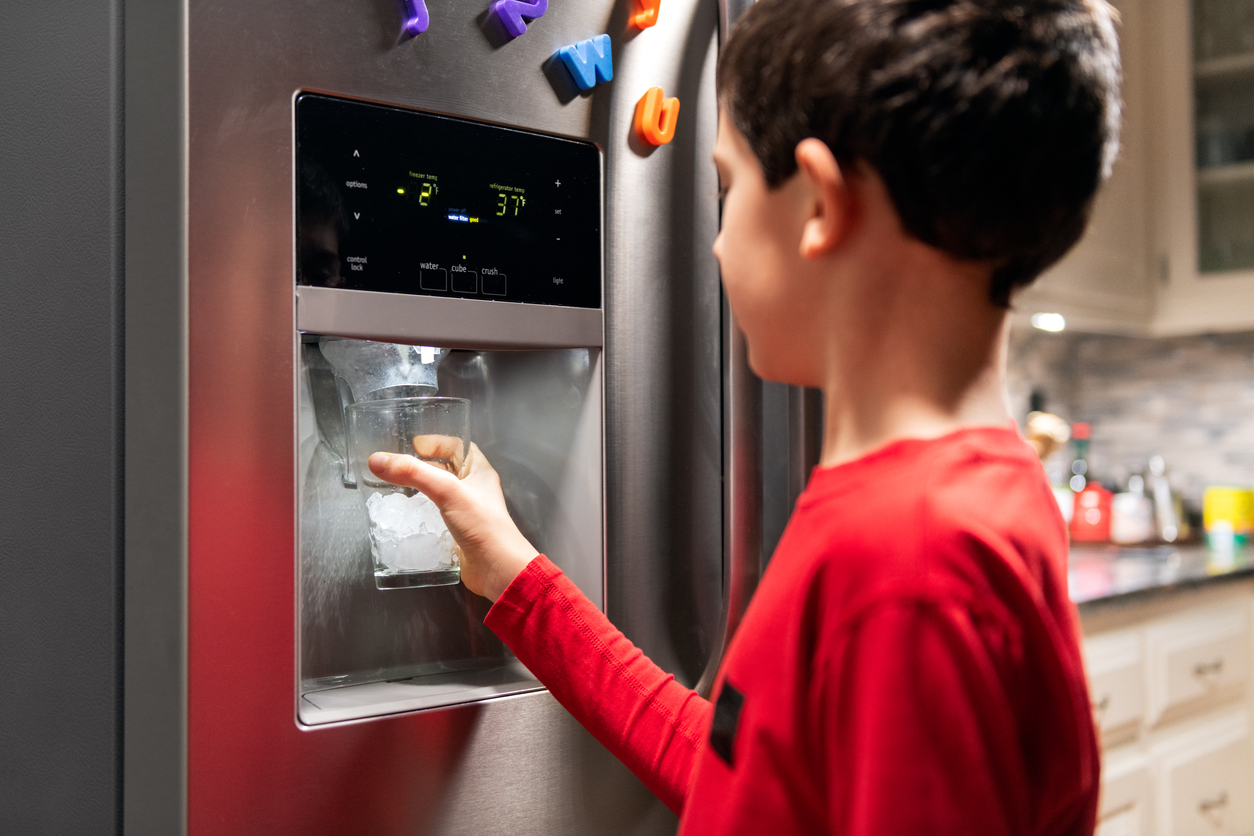
Did the ice maker stop working?
If your ice maker fails to produce ice, the fill tube behind the ice maker may be clogged. Defrost the fill tube by blowing hot air from a hair dryer to restore it to working order. Make sure everything is dry and clear before attempting to make ice again, as any water can freeze and clog the tube.
Is there a mysterious spill inside the refrigerator?
If you spot a spill in your fridge that’s not from a beverage or food, the drain tube might be stopped up and conveying excess moisture into the unit instead of the drain pan at the base.
Locate the drain plug on the back wall of the main fridge compartment, moving any foods blocking it to another shelf or out of the fridge temporarily. Then fill a turkey baster or a meat injector (a syringe used to infuse the meat with flavoring) with a 50-50 solution of bleach and warm water and flush out the plug (it may require several applications). When you’re finished, dispose of the dirty liquid that settled in the drain pan at the base of the fridge.
How do you get rid of an old fridge?
Fridges shouldn’t be put on the curb with the rest of your garbage on trash day as they contain recyclable components as well as chemicals that can harm the environment. Here are a few ways to correctly dispose of an old fridge.
- Ask the dealer for your new fridge whether they can remove the old one upon delivery and installation; many routinely perform this service.
- If the appliance dealer won’t remove the old unit, contact your city government to find out if old fridges are accepted through its program. If your city recycling doesn’t accept refrigerators, ask a local recycling agency (find a listing at the EPA’s Responsible Appliance Disposal program webpage).
- If recycling isn’t an option, inquire with your city’s residential trash department about whether they accept bulky waste such as refrigerators. Depending on where you live, you may have to pay a fee (usually under $50) for this service.
- Schedule a date with your city or other local recycling agency for refrigerator pick-up. Follow any recommendations for preparing your fridge for collection. You may need to detach the doors by removing the bolts from the top of the unit. Transport the fridge outdoors on a dolly and position it far away from gas meters, fences, and other nearby structures.
- Alternatively, if your city has DIY disposal sites for recyclable collection, tie the refrigerator to a truck bed with rope, drive it to the disposal site, and unload it as instructed by the attendants.
Final Thoughts
There are many ways to extend the life of a refrigerator. Properly maintaining the appliance through regular cleaning, and investigating any issues as soon as they are spotted can help. However, if you have been wondering, “How long do refrigerators last?” it may already be time to start looking for a new one.
FAQs About Refrigerator Lifespan

A refrigerator has become an essential part of a modern home, and without a functioning fridge, it can be extremely tough to prepare and store food properly at home. While we’ve shared details about maintaining and troubleshooting fridges above, here are some answers to popular questions about fridge lifespan.
Q: How long should a refrigerator last?
Refrigerators can last about 10 to 15 years, but the lifespan of each fridge depends on the exact model and how it has been maintained.
Q: When is the best time to buy a refrigerator?
The best time to buy a fridge is before the current one stops working. Review the signs of when a fridge may be failing (above), and plan to order one before you need it. With the current supply chain issues, it may be months before the model you desire is available. If you are just wanting to upgrade your model, there are usually appliance sales during national holidays.
Q: Which refrigerators last the longest?
Historically, fridges with freezers on top or bottom tend to last the longest, and those from well-known refrigerator brands like Whirlpool and LG tend to top lists for most reliable. The fewer parts that can fail translates into a model that could potentially last longer and cost less to repair.

